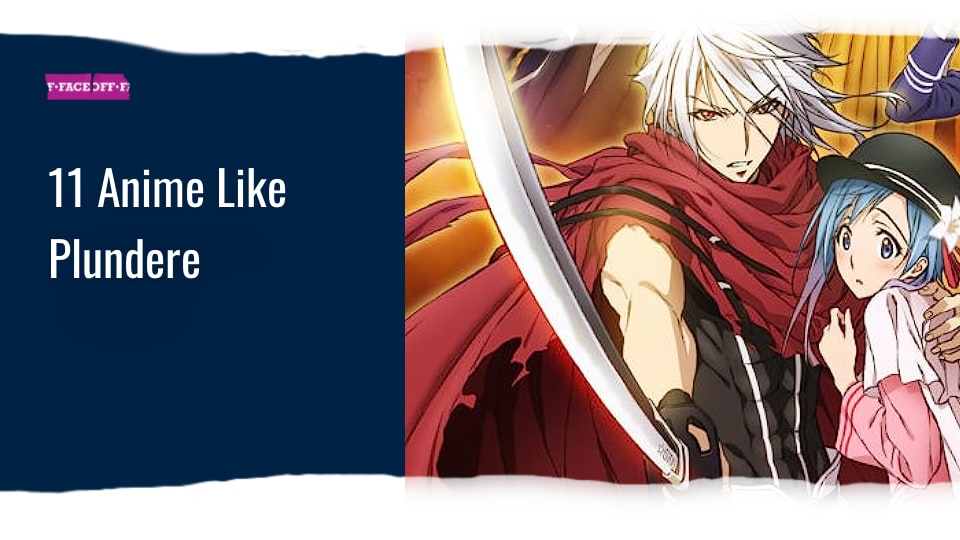If you’ve found yourself captivated by the unique blend of action, fantasy, and intriguing worlds in Plunderer, you’re in for a treat. Here’s a curated list of 12 anime like Plunderer, each resonating with the thematic brilliance of Plunderer. These selections promise to satiate the hunger for adventure and the desire for narratives that resonate deeply. Plunderer invites viewers into a world governed by numerical counts, where the value of individuals is measured by a cosmic ledger. In this numerical society, the narrative unfolds around characters wielding extraordinary powers, exploring profound themes of identity, destiny, and the weight of one’s actions. As protagonists navigate this intricately constructed universe, the series becomes a tapestry of action, drama, and fantasy, keeping audiences on the edge of their seats.
Trigun

Trigun is an anime like Plunderer, it shares thematic similarities centered around a distinctive numerical system that influences the destinies of their characters. In both series, characters grapple with the consequences of their actions, exploring profound themes of identity and destiny. The narratives seamlessly blend action, drama, and fantasy. While each anime has a unique setting, the common threads of numerical significance and the exploration of the repercussions of choices create a resonance between Trigun and Plunderer.
Trigun follows the adventures of Vash the Stampede, a gunslinger with a mysterious and troubled past. In a desert wasteland on the planet Gunsmoke, Vash is known for the massive bounty on his head, earned due to the destruction that seems to follow him. Despite his reputation as a fearsome and destructive force, Vash is actually a pacifist with a deep aversion to killing. The anime unfolds as Vash navigates various encounters, making friends and enemies along the way. As the narrative progresses, the audience learns more about Vash’s enigmatic history, his connection to the powerful and deadly Gung-Ho Guns, and the mysterious and destructive power hidden within him.
Chain Chronicle: Haecceitas no Hikar
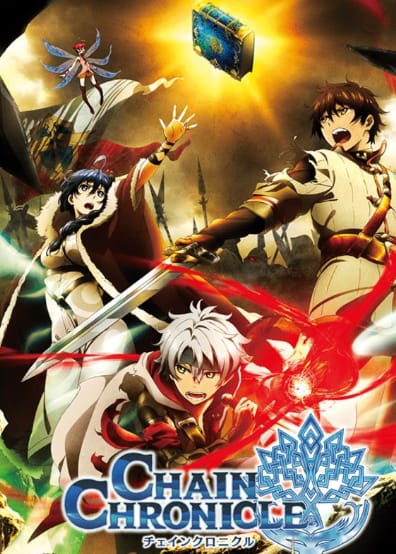
Both anime seamlessly blend action, fantasy, and drama, offering audiences engaging narratives with suspenseful developments. “Chain Chronicle” and “Plunderer” cater to fans of immersive worlds, character growth, and high-stakes adventures, each providing a unique take on the convergence of forces in the face of looming threats.
Chain Chronicle unfolds in the continent of Yggdra, where humanity battles against the encroaching Black Army threatening to engulf the land in darkness. The narrative follows Yuri, a young hero leading the Volunteer Army, as he recruits powerful allies known as the Holy Chain to counter the impending doom. Together, they embark on a journey to reclaim seized territories and prevent the world’s descent into chaos. In comparison to Plunderer, Chain Chronicle shares the theme of a group of diverse characters uniting for a common cause. While Plunderer explores a world where numerical counts dictate individuals’ worth, Chain Chronicle focuses on the epic struggle between light and darkness, with characters wielding unique abilities and strengths.
YU-NO: A Girl Who Chants Love at the Bound of This World

The narrative combines science fiction, mystery, and romance. Takuya Arima is a high school student investigating his father’s mysterious death. As Takuya delves into his father’s research, he discovers a device that allows him to travel between parallel worlds. The anime explores themes of time travel, alternate realities, and the consequences of choices. Takuya’s journey takes unexpected turns as he encounters diverse characters and unravels the secrets surrounding the device. The narrative weaves a complex web of interconnected timelines, presenting a thought-provoking exploration of cause and effect.
In relation to an anime like Plunderer, both series share a penchant for intricate storytelling and thematic depth. While Plunderer focuses on a world governed by numerical counts, YU-NO delves into the complexities of parallel worlds and the impact of decisions across different timelines.
The Rising of the Shield Hero (Tate no Yuusha no Nariagari)
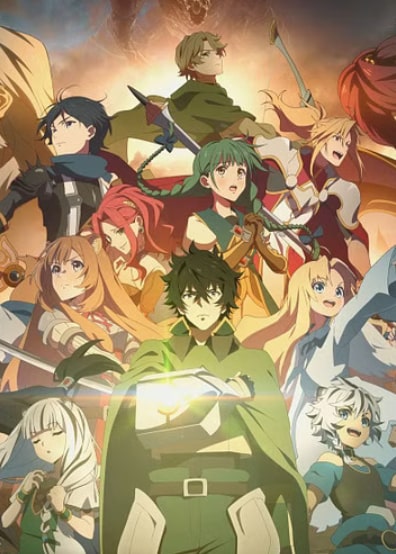
Naofumi Iwatani is one of four young men summoned to a parallel world to become Cardinal Heroes. Naofumi, initially optimistic, becomes the Shield Hero, perceived as the weakest among the heroes, and faces adversity when falsely accused of a crime. Betrayed and ostracized, he must overcome mistrust, build alliances, and grow stronger to protect the world from interdimensional calamities known as waves.
In comparison to an anime like Plunderer, where characters’ worth is measured by numerical counts, The Rising of the Shield Hero introduces a different kind of adversity. Naofumi’s struggles echo the overarching theme of resilience found in “Plunderer.” Both series explore the consequences of their protagonists’ actions and the moral complexities they encounter in their quests.
Despite differing narrative premises, both anime seamlessly weave action, drama, and fantasy elements into their storytelling. Whether it’s the numerical system in Plunderer or the unique weapons and abilities in “Shield Hero,” these series captivate audiences with suspenseful developments and thought-provoking explorations of identity and growth. Fans of high-stakes adventures and character-driven narratives are sure to find resonances between the intricate worlds of Plunderer and The Rising of the Shield Hero.
The Seven Deadly Sins (Nanatsu no Taizai)
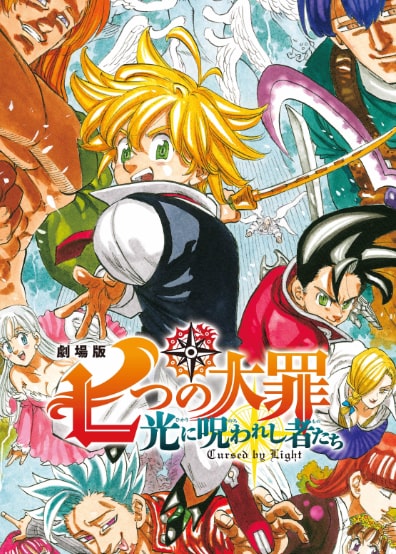
Welcome to the Kingdom of Liones, a realm fraught with political intrigue, magic, and a growing shadow threatening its peace. The narrative unfolds as the legendary group of knights, the Seven Deadly Sins, once revered as the kingdom’s protectors, are accused of conspiring against the throne. Falsely branded as traitors, the Sins disband and disappear from the public eye.
The story truly begins when Princess Elizabeth embarks on a journey to reunite the disbanded Seven Deadly Sins and seek their help in saving the kingdom. Each Sin represents one of the deadly sins and possesses unique abilities, making them formidable warriors. The ensemble includes the laid-back yet powerful Meliodas, the graceful and deadly Diane, the enigmatic and skilled King, and others, each contributing to a harmonious blend of strength and personality. The Seven Deadly Sins face powerful adversaries, including the mysterious Holy Knights and ancient demonic forces. The series masterfully weaves together themes of friendship, loyalty, redemption, and the constant struggle between the forces of good and evil.
I’m Quitting Heroing (Yuusha, Yamemasu)
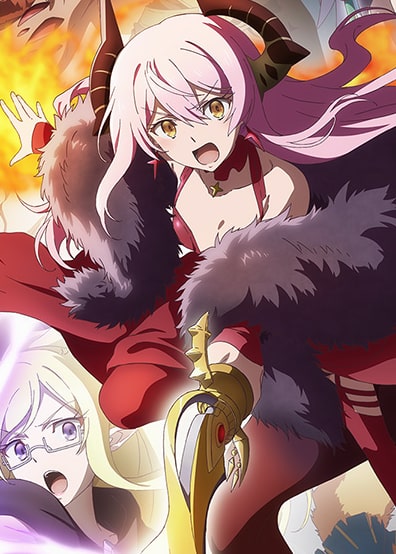
Both anime offer unique perspectives on identity, purpose, and the struggles associated with breaking away from societal expectations. Fans of thought-provoking narratives and character-driven stories may find appeal in both Plunderer and I’m Quitting Heroing, each providing a distinctive take on the exploration of unconventional paths in their respective worlds. I’m Quitting Heroing, an anime known for its unique take on heroism, follows the story of a hero who decides to retire from the conventional hero’s journey. The protagonist seeks a quieter and more peaceful life, only to discover that leaving heroism behind is easier said than done. As the series unfolds, viewers witness the challenges and unexpected adventures that arise from the decision to step away from the heroic path. The narrative explores themes of identity, purpose, and the complexities of finding peace in a world that often demands heroism.
While Plunderer revolves around numerical significance and high-stakes adventures, I’m Quitting Heroing takes a more comedic approach, focusing on a hero attempting to retire. The two series, though different in tone, explore the personal journeys of characters seeking a new direction in their lives, away from the conventional hero’s narrative.
Tower Of God (Kami no Tou)
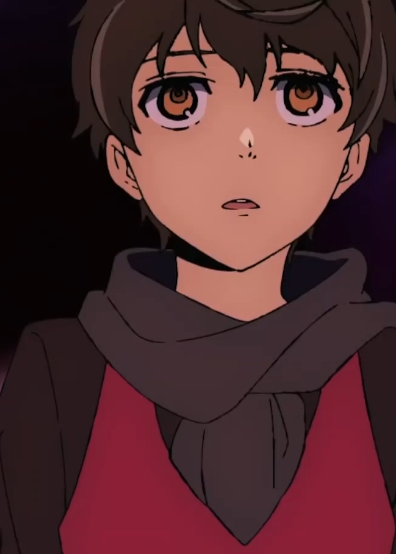
A mysterious tower that promises unimaginable treasures and the fulfillment of one’s deepest desires to those who ascend its levels. The story unfolds as Bam, the protagonist, enters the tower in search of his friend Rachel, only to discover a complex and perilous world filled with challenges, tests, and powerful adversaries. As Bam navigates the tower’s floors, he forms alliances with other climbers, each driven by their own ambitions. The tower’s structure, with its multifaceted trials, serves as a backdrop for intricate character development, strategic battles, and the unraveling of hidden truths.
In comparison to Plunderer, while both series offer a blend of action, fantasy, and character-driven narratives, Tower of God distinguishes itself through the vertical progression of the tower’s levels. The characters face trials that test not only their physical abilities but also their resolve, loyalty, and understanding of the tower’s mysteries. The thematic richness in both anime lies in the exploration of personal growth, friendship, and the pursuit of aspirations within fantastical settings.
To the Abandoned Sacred Beasts (Katsute Kami Datta Kemono-tachi e)
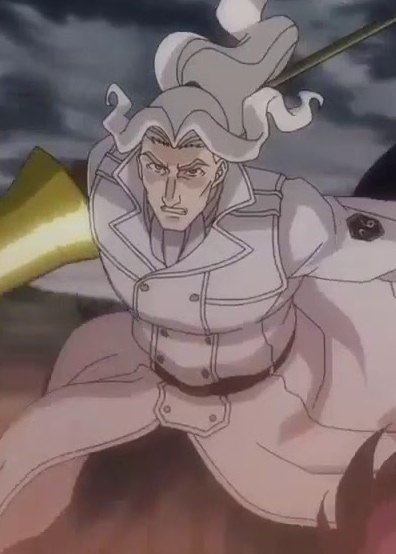
Comparatively, Plunderer and To the Abandoned Sacred Beasts share thematic richness through character-driven narratives set in fantastical worlds. While Plunderer focuses on numerical significance and high-stakes adventures, To the Abandoned Sacred Beasts explores the repercussions of war and the ethical challenges faced by its characters.
To the Abandoned Sacred Beasts ventures into a world ravaged by war and explores the aftermath of soldiers transformed into mythical creatures known as Incarnates. The story revolves around Hank, a former captain, who, after witnessing the horrors of war, embarks on a mission to euthanize his fellow Incarnates to prevent further devastation. As Hank grapples with his duty and the ethical dilemmas surrounding the Incarnates, the narrative unfolds with action, drama, and exploration of the characters’ internal struggles.
Romeo x Juliet
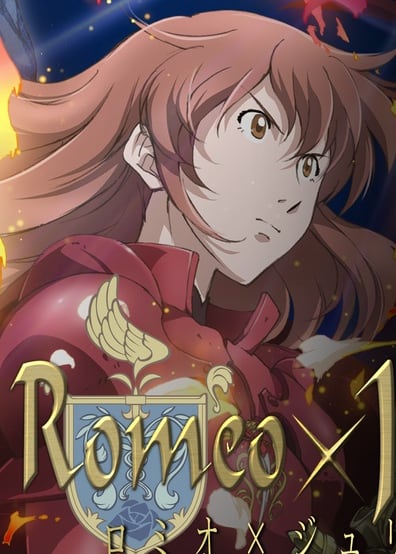
In comparison to Plunderer, while the genres differ, both anime share thematic richness through character-driven narratives. Plunderer focuses on numerical significance and high-stakes adventures, while Romeo x Juliet explores the complexities of love and fate in a beautifully crafted, alternate world.
The anime is a unique and enchanting retelling of William Shakespeare’s classic play, set in the fantastical floating city of Neo Verona. The narrative revolves around Juliet Capulet, the last surviving member of the Capulet family, and Romeo Montague, who becomes entwined in a tale of love, tragedy, and political intrigue. As Juliet navigates a world filled with political conspiracies and familial strife, she discovers her true identity and the destiny that awaits her. The series beautifully weaves together elements of romance, drama, and fantasy, capturing the essence of Shakespeare’s timeless tale while introducing new twists and turns.
Fullmetal Alchemist: Brotherhood
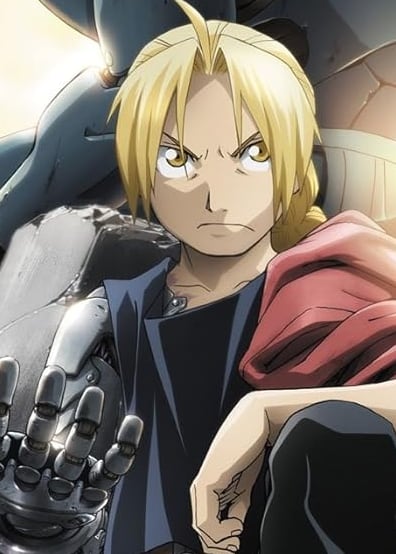
Fullmetal Alchemist: Brotherhood stands as a pinnacle in anime, adapting Hiromu Arakawa’s manga with precision and artistry. The narrative unfolds in a world where alchemy is a science, following the journey of two brothers, Edward and Alphonse Elric. After a failed alchemical experiment to resurrect their mother, Edward loses his limbs, and Alphonse’s entire body is lost, his soul bound to a suit of armor. The brothers embark on a quest to obtain the Philosopher’s Stone, seeking to restore their bodies. The series explores profound themes, including sacrifice, morality, and the consequences of tampering with natural laws. A complex narrative interwoven with political intrigue and unforgettable characters contributes to the anime’s enduring appeal. “Fullmetal Alchemist: Brotherhood” masterfully balances action, philosophy, and emotion, making it a cornerstone of the anime genre.
In comparison to it’s an anime like Plunderer, while the genres differ, both anime share thematic depth through character-driven storytelling. Plunderer focuses on numerical significance and high-stakes adventures, while Fullmetal Alchemist: Brotherhood delves into the consequences of alchemical pursuits and the price of power.
Barakamon

In contrast to “Plunderer,” which revolves around high-stakes adventures and numerical significance, “Barakamon” takes a more laid-back approach, focusing on the charm of everyday life and personal growth.
Barakamon offers a delightful slice-of-life anime centered around Seishuu Handa, a talented but uptight calligrapher who, after a public outburst, is sent to the remote Goto Island to find inspiration and reflect on his craft. As Handa adjusts to rural life, he encounters the eccentric locals, including a spirited young girl named Naru, who becomes his unlikely muse.The series explores themes of self-discovery, creativity, and the joy of simple living. Handa’s interactions with the islanders bring humor and heartwarming moments, creating a narrative that celebrates the beauty of human connections and the pursuit of one’s passion.

